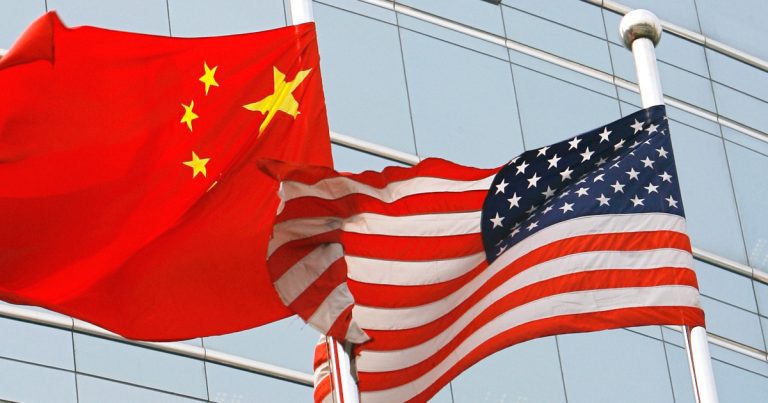HONG KONG — The United States and China renewed a decades-old agreement scientific and technological cooperation agreementofficials from both countries said Friday, narrowing its scope and adding safeguards to address concerns about national security risks.
The Science and Technology Agreement, initially signed in 1979, was the first agreement between the two countries after the normalization of diplomatic relations. It had historically been renewed about every five years, but U.S. lawmakers have expressed concerns in recent years as China becomes a growing technological rival.
The deal, which was due to be renewed in 2023, received two six-month extensions before expiring on August 27 this year, and its extension had been under negotiation for months.
The State Department said Friday that the “modernized and strengthened” agreement had been extended for five years. He said the agreement supports the protection of intellectual property, establishes new safeguards to protect the safety and security of researchers and “advances the interests of the United States through newly established and strengthened provisions on the transparency and reciprocity of data.
The agreement only covers basic research and does not facilitate the development of critical and emerging technologies, the ministry said.
The Biden administration has export controls imposed on advanced semiconductor chips and restricted investment in other strategically sensitive areas in China, such as artificial intelligence and quantum computing, citing concerns that these technologies could contribute to China’s military modernization.
The renewal of the agreement was also confirmed Friday in a brief statement from China’s Ministry of Science and Technology, which did not provide details.
Supporters of the pact argued that its non-renewal would not only jeopardize government-to-government collaboration in vital areas such as climate change and public health, but also hinder academic cooperation between the world’s two largest economies.
Science and technology cooperation has already been hampered by the China Initiative, a Trump-era national security program intended to combat the theft of intellectual property at universities and research institutes. The program, which prompted several leading Chinese researchers to leave the United States, ended in 2022 after a series of unsuccessful lawsuits.
Asian American advocacy groups have said scientists of Chinese descent are unfairly targeted by the program, something lawmakers in the House of Representatives believe. seeking to revive.


